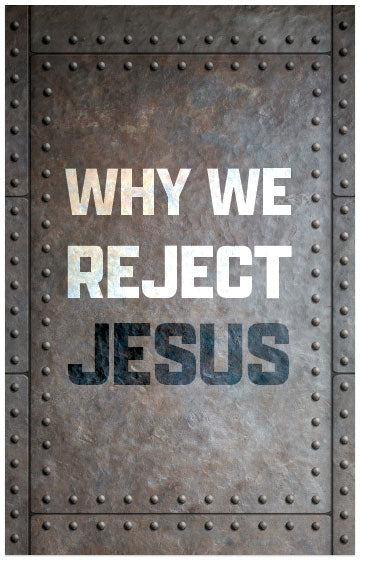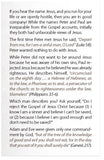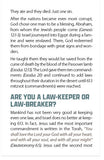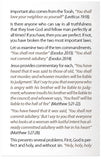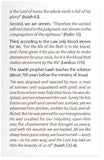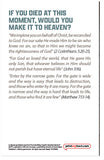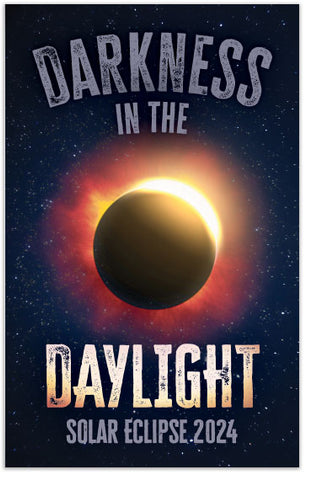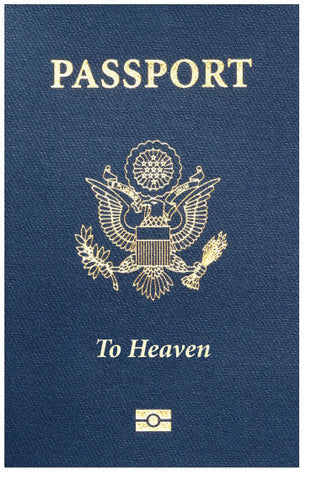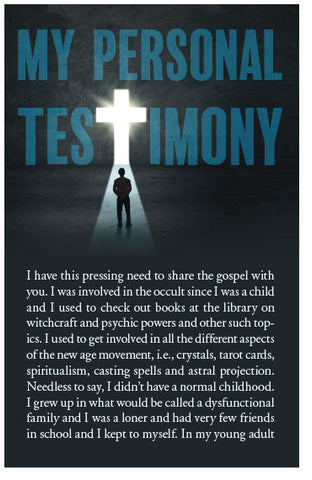Why We Reject Jesus
Special-Order Folded Tract
 NOTE: This item is custom-printed to order (click for more details).
NOTE: This item is custom-printed to order (click for more details).
This tract is from our print-on-demand library, and is not kept in stock. Select the options below, and we will custom-print a batch just for you. Because this item is custom-printed, you can add your custom imprint to the back page at no extra cost.
- Estimated shipping date: Thursday, January 29 (Click for more details)
- SKU:
- Discounts: Discount coupons do not apply to this item
- Format: Folded Tract
- Size: 3.5 inches x 5.5 inches
- Pages: 6
- Imprinting: Available with 5 lines of custom text
- Version: ESV
- Returns: Because this item is custom-printed to order, it cannot be returned.
Show all item details
The full text of this tract is shown below in the ESV version. (Do you want to print this tract in a different version than the one listed? Contact us and let us know what you're looking for—we may be able to create the alternate version for you at no charge.)
If you hear the name Jesus, and you run for your life or are openly hostile, then you are in good company! While the names Peter and Paul are inseparable from the Gospel accounts, initially they both had unfavorable views of Jesus.
The first time Peter met Jesus he said, “Depart from me, for I am a sinful man, O Lord” (Luke 5:8). Peter wanted nothing to do with Jesus.
While Peter did not want to be around Jesus because he was aware of his own sins, Paul rejected Jesus because he believed he was already righteous. He describes himself, “circumcised on the eighth day … a Hebrew of Hebrews; as to the law, a Pharisee; as to zeal, a persecutor of the church; as to righteousness under the law, blameless” (Philippians 3:5-6).
Which man describes you? Ask yourself, “Do I reject the Gospel of Jesus Christ because (1) I know I am a sinner and believe I can’t be saved, or (2) because I believe I am good enough and don’t need to be saved?”
Adam and Eve were given only one commandment by God, “but of the tree of the knowledge of good and evil you shall not eat, for in the day that you eat of it you shall surely die” (Genesis 2:17).
They ate and they died. Just one sin.
After the nations became even more corrupt, God chose one man to be a blessing, Abraham, from whom the Jewish people come (Genesis 12:1-3). Israel journeyed into Egypt during a famine and were enslaved. There, God redeemed them from bondage with great signs and wonders.
He taught them they would be saved from the curse of death by the blood of the Passover lamb (Exodus 12:13). The Lord gave them ten commandments (Exodus 20) and continued to add laws throughout their duration in the desert until 613 mitzvot (commandments) were reached.
Are you a Law-keeper or Law-breaker?
Mankind has not been very good at keeping even one law, and Israel does no better at keeping 613. In fact, Jesus said the most important commandment is written in the Torah, “You shall love the Lord your God with all your heart, and with all your soul, and with all your might” (Deuteronomy 6:5). Jesus said the second most important also comes from the Torah, “You shall love your neighbor as yourself” (Leviticus 19:18).
Is there anyone who can say in all truthfulness that they love God and fellow man perfectly at all times? If you have, then you are perfect. If not, you have broken the two most important laws.
Let us examine two of the ten commandments. “You shall not murder” (Exodus 20:13). “You shall not commit adultery” (Exodus 20:14).
Jesus provides commentary for each, “You have heard that it was said to those of old, ‘You shall not murder; and whoever murders will be liable to judgment.’ But I say to you that everyone who is angry with his brother will be liable to judgment; whoever insults his brother will be liable to the council; and whoever says, ‘You fool!’ will be liable to the hell of fire” (Matthew 5:21-22).
“You have heard that it was said, ‘You shall not commit adultery.’ But I say to you that everyone who looks at a woman with lustful intent has already committed adultery with her in his heart” (Matthew 5:27-28).
This presents several problems. First, God is perfect and holy, and without sin. “Holy, holy, holy is the Lord of hosts; the whole earth is full of his glory!” (Isaiah 6:3).
Second, we are sinners. “Therefore the wicked will not stand in the judgment, nor sinners in the congregation of the righteous” (Psalm 1:5).
Third, according to the Law only blood atones for sin, “For the life of the flesh is in the blood, and I have given it for you on the altar to make atonement for your souls, for it is the blood that makes atonement by the life” (Leviticus 17:11).
The Jewish prophet Isaiah teaches the solution (about 700 years before the ministry of Jesus):
“He was despised and rejected by men, a man of sorrows and acquainted with grief; and as one from whom men hide their faces He was despised, and we esteemed Him not. Surely He has borne our griefs and carried our sorrows; yet we esteemed Him stricken, smitten by God, and afflicted. But He was pierced for our transgressions; He was crushed for our iniquities; upon Him was the chastisement that brought us peace, and with His wounds we are healed. All we like sheep have gone astray; we have turned—every one—to his own way; and the Lord has laid on Him the iniquity of us all” (Isaiah 53:3-6).
If you died at this moment, would you make it to heaven?
“We implore you on behalf of Christ, be reconciled to God. For our sake He made Him to be sin who knew no sin, so that in Him we might become the righteousness of God” (2 Corinthians 5:20-21).
“For God so loved the world, that He gave His only Son, that whoever believes in Him should not perish but have eternal life” (John 3:16).
“Enter by the narrow gate. For the gate is wide and the way is easy that leads to destruction, and those who enter by it are many. For the gate is narrow and the way is hard that leads to life, and those who find it are few” (Matthew 7:13-14).

